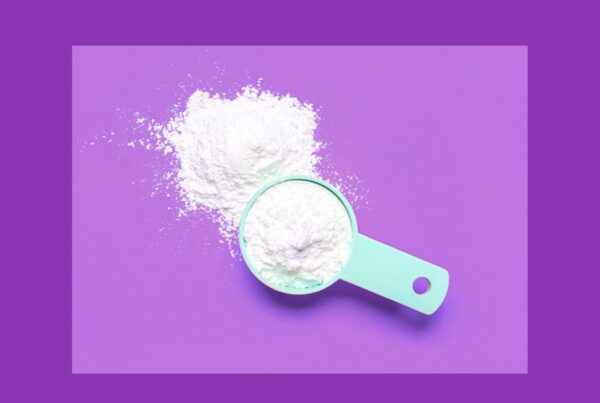Hopefully we can answer this question for you, as there is so much confusion surrounding it.
There is no set time limit for using HRT.
Out-dated guidelines used to say “for the shortest time possible” but all modern guidelines now say for however long it is needed. Many women enjoy an overall improvement in their well-being, including muscle gain, energy levels, and sleep quality when using hormone therapy, and they choose to continue it until old age.
Both menopause symptoms and your health can change over time, so your HRT regime should also evolve accordingly. Your doctor may suggest reducing your dose or changing the type of HRT you use as you travel through postmenopause.
HRT for symptoms
If you are using HRT to manage symptoms, you can continue as long as you need to and as long as the benefits outweigh the risks.
The average time to have menopausal symptoms is around 7 years so this can act as a guide to how long you might need it. The only way of knowing if you will get a recurrence of symptoms is to trial stopping your HRT and see what happens. If symptoms return, you can simply restart if you choose.
As you age, your natural risk of breast cancer increases as well and there is some evidence that this risk is increased a little the longer you use synthetic progesterones in HRT. It is unclear if the use of long-term body identical progesterone has the same risk, and the risk is small. All women, including those using HRT, should have their regular mammogram screening.
Emerging health concerns, such as the development of a hormone-sensitive cancer, usually require the cessation of HRT. Sometimes stopping HRT is combined with anti-hormone treatments, which can cause the resumption of disabling menopausal symptoms for some women. In these cases, non-hormonal medication and behavioural techniques can be explored for symptom management.
If a woman has experienced early menopause (last period before the age of 45) or premature ovarian insufficiency (last period before the age of 40), continued use of HRT until the average age of the last period (around 51 years) is highly recommended to prevent the long-term health consequences of low oestrogen levels on the cardiovascular system, bones, and cognitive health.
It is estimated that around 10% of women flush into their 70’s!
HRT for bones
If you are taking HRT for bone health – any decision to stop HRT needs to be made carefully and with your doctor. You may need to get a further bone density scan (DEXA) to see how your bones are. Some women need to switch to alternative bone medication if they stop HRT (and we don’t mean calcium and vitamin D but the heavy hitting prescription stuff!). The important thing to remember about bones is that we are aiming to prevent bone loss and don’t have many options that guarantee new bone growth. HRT is a powerful preventer of bone loss.
How to stop
Research shows that the recurrence of symptoms is no different if you go cold turkey or taper your dose. If you choose to taper, simply halve your dose for a few weeks (eg half the gel dose, cut the patch in half, take tablets second daily). Then simply stop or halve it again.
Don’t forget your vagina!
Unlike other symptoms which settle, vaginal and bladder tissues get thinner and dryer over time following menopause. For most women, using systemic HRT will help these tissues as well but when you stop, think about how you can protect these important parts of your body.
Vaginal oestrogen is a safe and simple strategy. Every women should consider whether vaginal oestrogen is part of her healthcare routine (even most women with breast cancer can use it). Inserting a pessary (a vaginal tablet) 2-3 times a week is all that is required. Vaginal moisturisers can also help if dryness is a problem.






